New Senate: 51 Democrats 49 Republicans
|
| Nov. 29 | Pickups: | Missouri, Montana, Ohio, Pennsylvania, Rhode Island, Virginia | |
News from the Votemaster
Larry Kissell (D) has conceded defeat to incumbent Robin Hayes (R) in NC-08. Hayes won by 329 votes. This means that just two House races remain open now, FL-13 (balky voting machines) and TX-23 (runoff in December).
Campaign 2008 is already in full swing. I'm am not going to start logging polls yet since they are totally meaningless at this point in the cycle. Nevertheless some of the candidates have recently discovered how much they have always loved winter in New Hampshire. Below we look at some potential candidates, some of whom are (semi-)announced and some of whom are playing hard to get.
When looking at 2008 presidential candidates, always keep two things in mind. First, every morning 100 U.S. senators look in the bathroom mirror and see a future president. Many run, but only two sitting senators have ever been elected president: Warren Harding (R-OH) in 1920 and Jack Kennedy (D-MA) in 1960. The reason is clear: senators have to vote thousands of times and opponents can always dredge up some vote to batter them over the head with. The problem is exacerbated by the intricacies of Senate procedures, where the key vote may be on the motion to table the motion to reconsider some proposal. Note to senators: Both Harding and Kennedy died after serving for only 2 1/2 years. Are you really sure you want the job?
Second, people who vote in Republican primaries are to the right of the Republican Party and way right of mainstream America and people who vote in Democratic primaries are the left of the Democratic Party and way left of mainstream America. As a consequence, candidates who might be able to win the general election are often disliked by primary voters as too centrist. Politicans respond by talking fairly extreme during primary season and then ignoring what they said in the Spring during the Fall. Count on it.
Also worth nothing is that two years before the election, few people are tuned in and pollsters asking "Who would you like to win the Democratic Party nomination might as well be asking "Please name some Democrat." Ditto for the Republicans. In 2002, everyone was expecting Gore or Lieberman to be the Democratic nominee in 2004. Nobody saw the rise (and fall) of Howard Dean. As Harold Wilson famously remarked,: "In politics, a week is a long time."
Click on a picture for the candidate's home page.
Click on a name for the candidate's entry in the Wikipedia.
Click on a party (D) or (R) for the national party
All off-site references open in a new window. Type CTRL-W in the window to close it.
Democrats
| Candidate | Notes |
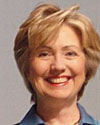
Hillary Clinton (D) |
Hillary Clinton scares the daylights out of BOTH parties. The Democrats know that half the country hates her guts. Part of the hatred is due to her being an "uppity woman," part due to her being a calculating politician, and part due to her role in the health care debacle in Bill's first term. On the other hand, the Republicans know she can raise boatloads of money, maybe more than they can, and they also know that her husband is without a doubt the best campaigner alive today and just itching to hit the campaign trail. Another point is that she is kind of sexy and some people may find that threatening. Golda Meir and Margaret Thatcher didn't have that problem. Another strike against her is that to win, the Democrats have to do better in the South or the interior West and a senator from the Northeast is a tough sell there. Still, with universal name recognition, a razor-sharp mind, and more cash than Uncle Scrooge, she's the person to beat. |
| Candidate | Notes |

Al Gore (D) |
Al Gore is the 800-pound gorilla waiting in the wings. Like Hillary, he has universal name recognition and if he runs, the blogosphere will raise millions for him in a flash. People often ask: "What do the Democrats stand for?" Gore could answer: "Saving the planet; it's the only one we have." He could also quote NYT columnist Tom Friedman and say: "We will never win the war on terror if we keep on financing both sides." The centerpiece of his program could be ethanol as fuel (popular in Iowa and the Midwest), alternative energy, and conservation, with the additional goal of eliminating imports of oil from the Middle East by, say, 2020. That would cut off the terrorists' money supply. His role model could be Richard Nixon, who narrowly lost a bitter election in 1960 (when Mayor Daley raised the dead to vote in great numbers) but came back to win eight years later. |
| Candidate | Notes |
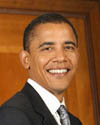
Barack Obama (D) |
Barack Obama is experiencing a bit of a boomlet now, but a young black freshman senator with no foreign policy experience is an inviting target for the Republicans. Yes, Jack Kennedy was a freshman senator in 1960, but he had already served two terms in the House and was a war hero in WWII (but Lloyd Bentsen is dead so Obama need not fear him saying: Senator, you're no Jack Kennedy). Also instructive is what happened to Harold Ford, Jr., another charismatic young black Democrat, in the recent Tennessee senatorial election. The Republicans ran a now-infamous bimbo ad showing a sleazy blonde winking at Ford, and Ford lost his lead. The Republicans will harp on Obama's lack of military service and foreign policy experience, although he could counter that by choosing Wesley Clark as veep and Sam Nunn as Defense Secretary. Still, he probably lacks the gravitas people expect in a president. |
| Candidate | Notes |

John Edwards (D) |
John Edwards has a lot going for him. He is well known, from the South, and knows how to run a national campaign. He is also an extraordinarily good speaker and has a consistent message: preventing the country from dividing into the haves and the have nots. For middle class people barely hanging on, his economic populism could have great appeal. The death of his 16-year son in an auto accident in 1996 and how he recovered from that trauma gives him some authenticity that other politicians lack. Another thing going for Edwards is that he is perceived as a friendly, likeable guy and that counts for a lot. He has been campaigning virtually nonstop since 2004. |
| Candidate | Notes |
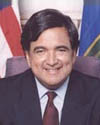
Bill Richardson (D) |
To win the presidency, the Democrats have to do better in the South, the Lower Midwest, or the West. Furthermore, governors do a lot better than senators. Add to this the fact that Hispanics are the fastest growing ethnic group in the country. Enter Bill Richardson stage left, the Hispanic governor of New Mexico, who previously served in Congress, was ambassador to the United Nations, and was Bill Clinton's Secretary of Energy. Richardson's mother is Mexican and he grew up in Mexico City, so he speaks fluent Spanish. He just won reelection with 68% of the vote, the largest gubernatorial win in the state's history. He is well-known in the region and a Richardson candidacy could potentially bring in New Mexico, Arizona, Nevada, and Colorado, all of which have sizeable and growing Hispanic populations. Of course, against John McCain, they cancel each other on the regional aspect. |
| Candidate | Notes |
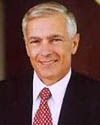
Wesley Clark (D) |
If the war in Iraq (or Iran or somewhere else) is on the front burner, retired four-star general Wesley Clark could be a credible candidate. he served in the army for 34 years and ended up as NATO's Supreme Allied Commander. On the other hand, he ran a lackluster campaign in 2004, but maybe he learned from it. In any event, a good showing in a run for the presidency would make him prime veep material for one of the candidates lacking military credentials. |
| Candidate | Notes |
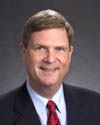
Tom Vilsack (D) |
Tom Vilsack waited exactly two days after the Nov. 2006 election to announce his candidacy for the presidency. He is not well known so he has no time to waste. As a popular governor of the state holding the first caucus or primary, he has a good chance to make a strong showing. On the other hand, for the former governor of Iowa to win in Iowa doesn't prove much. Some people have speculated that is really a stalking horse for Hillary Clinton. He allows her to skip Iowa, claiming that she is deferring to the native son. If she loses the other retail politics state, New Hampshire, she can still move onto the states where big-time money is crucial. While lightning could strike, a Vilsack candidacy is more likely to be seen as a bid for the vice presidency, where a popular Midwesterner could be an asset to the ticket. |
| Candidate | Notes |
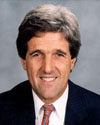
John Kerry (D) |
Finally we come to John Kerry, who dreams of mulligans. After running a singularly bad campaign and not even bothering to fight the vote count in Ohio, he is not a popular figure among Democrats. His chances of getting a do-over are very, very small. The last time the Democrats ran a loser again was with Adlai Stevenson in 1956, who at least passionately supported their candidate although they knew it was a losing cause. When Kerry starts campaigning, Democrats are going to be the first to throw brickbats, saying things like: "When the swiftboating started, why didn't you keep demanding to know why Bush didn't volunteer to go to Vietnam, like you did?" In a sense, Kerry is like Gore, a defeated candidate looking for a rematch, but there are key differences. For one, Gore won the popular vote, so he could truthfully say: "I could be elected president--in fact, I was." He also has an issue that he passionately cares about--the environment--something Kerry lacks. Finally, Gore retains a substantial core of supporters who would spring into action on a moment's notice. Kerry has few remaining supporters. |
Republicans
| Candidate | Notes |
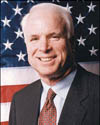
John McCain (R) |
John McCain is probably the front runner for the Republican nomination right now, but his nomination is no sure thing. McCain tries very hard to culivate his image of a moderate, despite being very conservative. (Some recent ratings: ADA: 0%; AFL-CIO: 14%; Chamber of Commerce: 72%; Christian Coalition: 83%; NAACP: 5%; NARAL: 0%; NOW: 0%; Nat. Taxpayers Union: 78%). Nevertheless, that's not good enough for The Base, which distrusts him because he voted against a constitutional amendment banning gay marriage. He is opposed to gay marriage; he is just against amending the constitution for this. He is spending a lot of time cozying up to Jerry Falwell and friends, but their love is easily withdrawn if a "movement conservative" is available (think: Sam Brownback or equivalent). McCain is also to the right of Bush on the war: he wants to send more troops. If the war is still the dominant issue in 2008, he's got a problem. But if domestic issues dominate, he may not be electable. Age could also play a role as he will be 76 at the end of a first term, three years older than Ronald Reagan was then. Nevertheless, even with these drawbacks, he is perceived as a moderate and in politics perception is everything. He is probably the Republicans' best shot. |
| Candidate | Notes |
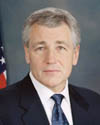
Chuck Hagel (R) |
Like John McCain, Chuck Hagel is a decorated Vietnam veteran. Since Hagel is less well known than McCain, he is staking out a different piece of territory: he says the war has failed and we ought to start thinking about getting out. He has been far more critical of George Bush than any Democrat, even John Murtha. If the war is still the dominant issue in 2008, he can say "I warned you years ago" and have a lot of credibility. Also unlike McCain, he is not cozying up to the right-wing preachers, which may hurt him in the primaries but will help him in the general election. On domestic issues, he is slightly more conservative than McCain, though. He positively radiates integrity and gravitas and at 60, he looks like a president. |
| Candidate | Notes |
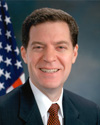
Sam Brownback (R) |
Sam Brownback is not widely known, but as the race heats up, he could be a reverse Howard Dean, wildly exciting The Base. He is very conservative, opposing gay marriage, stem cell research, evolution, and the whole nine yards. Think of him as Kansas' answer to Rick Santorum. Unlike some politicians he has been very consistent in his views over the years and the evangelicals could quickly come to adore him. His main problem would be convincing primary voters that he could win the general election. |
| Candidate | Notes |
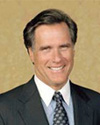
Mitt Romney (R) |
Mitt Romney is the son of former Michigan governor and failed presidential candidate George Romney. Romney is pro business and moderately conservative. However, he has two major problems. First, he was a 1-term governor of Massachusetts, a state not known for launching the careers of conservative Republicans (as of January 2007, Democrats will control the governor's mansion, both Senate seats, and all 10 House seats). Second, he is a Mormon, and unfortunately many evangelicals don't like Mormons. While religious discrimination shouldn't play a role in politics, in his case it will. |
| Candidate | Notes |
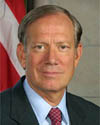
George Pataki (R) |
Unlike senators, who rarely make it to the White House, many governors have made the jump. Big-state governors often get bitten by the presidential bug and Pataki is no exception. He has been elected governor of New York three times and is now getting bored with the job. Like other Northeast Republicans, he is socially liberal (he is pro choice and pro gay rights) and fiscally conservative, but this puts him on a collision course with The Base. He is unlikely to win the nomination but would be a strong candidate in the general election if he somehow got nominated as a compromise candidate in a deadlocked convention. |
| Candidate | Notes |
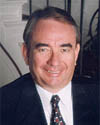
Tommy Thompson (R) |
Tommy Thompson was elected four times as governor of Wisconsin, leaving the state when George Bush appointed him as Secrtary of Health and Human Services in 2004, a job he stayed with for two years. As a long-term governor from a key Midwest swing state, he is a plausible presidential candidate, but it is not known if he really, really wants the job, a key requirement. He could have run for the Senate in 2006, but declined. |
| Candidate | Notes |
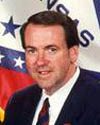
Mike Huckabee (R) |
Mike Huckabee, born in Hope, Arkansas, is currently finishing his second elected term as governor of his native state. He is keenly aware that another Hope native who governed Arkansas went on to bigger and better things. Huckabee used to be so fat that he could barely walk up the steps to his office. His subsequent diagnosis of diabetes scared him and he lost over 100 pounds and wrote a book entitled "Quit Digging Your Grave with a Knife and Fork. As governor he has focused on health issues. As an ordained Baptist minister from the South, he has a leg up on the competition, but as governor, he has had to be pragmatic and is not the kind of firebrand many Republicans want. Still, if everyone else falters, he may look increasingly good. |
| Candidate | Notes |
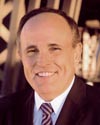
Rudy Giuliani (R) |
Rudy Giuliani scores well in national polls, but it is almost inconceivable that he could get the Republican nomination. Here's the ad Karl Rove will use against him: "When his beautiful actress second wife got tired of his cheating on her with his soon-to-be third wife, she kicked him out of the house, so he moved in with his best friends, a rich, loving gay couple living on Manhattan's chic upper east side. Throw in Giuliani's longstanding support of abortion, gay rights, and gun control, and to the Republican activists who vote in primaries, he might as well be the former mayor of Sodom and Gomorrah. He could become president though. All he has to do is become a Democrat. Imagine, a pro-choice, pro-gay, anti-gun tough guy former prosecutor. He'd give Hillary a real run for her money. |
| Candidate | Notes |
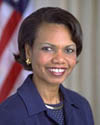
Condi Rice (R) |
Condi vs. Hillary? Wouldn't that be a gas? Condi has universal name recognition and she is tough as nails, but could an unmarried, pro-choice, black woman win her native Alabama? Like Hillary, she is not widely liked as a person, even by people who agree with her politics. And her widely-publicized shoe-buying spree while Katrina was making hundreds of thousands of people homeless didn't help her image much. Furthermore, she has never been elected to public office. She might make a plausible veep for a presidential candidate with no foreign policy experience though. |
| Candidate | Notes |
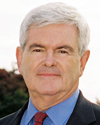
Newt Gingrich (R) |
Newt Gingrich is the ghost of Christmas past. He engineered the Republican revolution of 1994, but like Robespierre and Tom DeLay, was consumed by his own revolution. With the Democrats now back in power and his plans for a permanent Republican majority up in smoke, he seems unlikely to get the nod. But if the party begged him to be the nominee, he would graciously accept. |
Projected New House: 232 Democrats 201 Republicans 2 Ties
Dem pickups: AZ-05 AZ-08 CA-11 CO-07 CT-02 CT-05 FL-16 FL-22 IA-01 IA-02 IN-02 IN-08 IN-09 KS-02 KY-03 MN-01 NC-11 NH-01 NH-02 NY-19 NY-20 NY-24 OH-18 PA-04 PA-07 PA-08 PA-10 TX-22 WI-08
GOP pickups:
If you like this site, please announce it to news groups and blogs and tell your friends about it. If you have your own blog, please click on "For bloggers" above.
-- The Votemaster